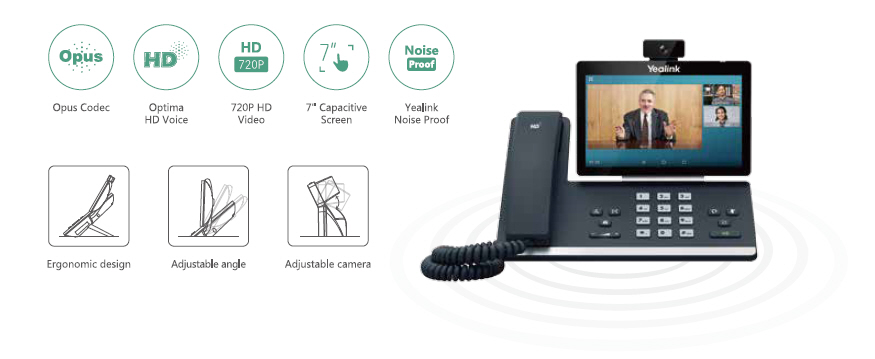Introduction
In today's fast-paced business environment, communication is the lifeblood of any organization. For multinational companies, this need is amplified due to their expansive reach and diverse clientele. Evaluating the right business phone system can not only streamline communication but also enhance productivity and ensure that your brand maintains a professional image across borders.
As globalization continues to reshape the business landscape, it’s essential for organizations to select a phone system that meets their unique needs and requirements. This article serves as your ultimate guide on how to evaluate business phone systems for multinational companies, providing insights into critical factors, Business Phone System https://soundcurve.com/voip-phone-service-marion-county-or/ https://soundcurve.com/voip-phone-service-yamhill-county-or/ evaluation methodologies, and solutions tailored for global enterprises.
Understanding Business Phone Systems
What Are Business Phone Systems?
Business phone systems are specialized telecommunication solutions designed to handle the communication needs of organizations. Unlike standard residential systems, these solutions offer features catering specifically to the demands of businesses, such as call routing, voicemail management, conference calling, and integration with other software applications.
Types of Business Phone Systems Available
Traditional Landline Systems- These are conventional phone systems that rely on copper wiring. Pros: Reliable and straightforward. Cons: Limited features and higher long-distance costs.
- Uses the internet to transmit voice calls. Pros: Cost-effective and feature-rich. Cons: Dependent on internet connectivity.
- A cloud-based solution managed by a third-party provider. Pros: Scalable and requires minimal maintenance. Cons: Privacy concerns if not managed properly.
- Installed directly in the company’s office. Pros: Complete control over infrastructure. Cons: Higher upfront costs and maintenance responsibilities.
Why Multinational Companies Need Specialized Phone Solutions
The Complexity of Global Communication
Operating across different countries introduces various challenges such as language barriers, cultural differences, regulatory issues, and technology adoption rates. As a result, multinational companies require robust phone systems capable of overcoming these hurdles while maintaining seamless communication.
Enhanced Collaboration Across Borders
A sophisticated business phone system facilitates collaboration among teams from various locations. Features like video conferencing, instant messaging, and group calls enable teams to work together efficiently despite geographical challenges.
Key Evaluation Criteria for Business Phone Systems
When evaluating a business phone system suitable for multinational operations, consider the following criteria:
1. Scalability
Why Scalability Matters?
As businesses evolve, their communication needs may change. An ideal phone system should effortlessly scale up or down based on your company's growth trajectory or operational fluctuations.
Assessing Scalability Options
- Does the provider offer flexible plans? Can you add more users or features easily? Is there support for multiple locations?
2. International Calling Rates
Understanding Cost Structures
For multinational companies that frequently communicate with clients or partners overseas, evaluating international calling rates is crucial in reducing operational costs.
Questions to Consider
- What are the pricing tiers for international calls? Are there packages available for specific countries? How does pricing compare with competitors?
3. Integration Capabilities
The Importance of Seamless Integration
Integrating your phone system with existing software tools can significantly enhance productivity by streamlining workflows.
Key Integrations to Look For
- Customer Relationship Management (CRM) software Team collaboration tools like Slack or Microsoft Teams Email marketing platforms
Evaluating User Experience (UX)
User-Friendly Interfaces
A complex interface can hinder productivity rather than enhance it. The chosen business phone system should be intuitive enough for all employees to use effectively without extensive training.
Customer Support Services
Reliable customer support is invaluable when technical issues arise. Assess whether your potential provider offers 24/7 support through multiple channels like chat, email, or telephone.
Security Considerations in VoIP Systems
Data Protection Regulations
Given that many multinational corporations deal with sensitive information daily, understanding data protection regulations relevant to each country you're operating in is paramount.
Security Features To Look For
End-to-end encryption. Regular software updates. Secure access controls and authentication protocols.Cost Analysis: Budgeting for Your System
Initial Setup Costs vs Ongoing Expenses
When assessing different options for a business phone system, it's crucial to differentiate between one-time setup fees and ongoing monthly expenses:
| | Initial Setup Costs | Monthly Fees | |----------------------|---------------------|--------------| | Traditional Landline | High | Moderate | | VoIP | Low | Low | | Hosted PBX | Moderate | Variable | | On-Premises PBX | High | Variable |
Assessing Call Quality & Reliability
Evaluating Connection Quality
Poor call quality can lead to misunderstandings and disrupt operations:
Investigate user reviews regarding call clarity. Request trial periods or demos before committing long-term.Redundancy Measures in Place
What happens if an outage occurs? Ensure your business phone service provider has redundancy measures such as backup servers or alternative routing options in case of connectivity problems.


Mobile Accessibility for Remote Workforces
With remote work becoming increasingly common worldwide:
- Check if your chosen system supports mobile devices seamlessly. Evaluate apps available across platforms (iOS & Android).
Customization Options Available
Every organization has unique needs; hence customizable features become vital:
- Are there options for personalized greetings? Can you create custom call flows?
FAQ Section
1. What is a VoIP System?
A VoIP (Voice over Internet Protocol) system allows voice calls using an internet connection instead of traditional telephone lines—often at reduced costs with enhanced features like video conferencing capabilities.
2. How do I know if my current phone system is outdated?
If you experience frequent outages, are unable to integrate newer technologies easily or find yourself paying exorbitant international calling fees—it's time reconsider your current solution!
3. What are some popular Business Phone System providers?
Some well-known providers include RingCentral, Vonage Business Communications, 8x8 Virtual Office Pro & Cisco Webex Calling among others; research their offerings based on your specific requirements!
4. Can I switch my existing number when changing providers?
Most providers allow number portability which means you can retain existing numbers during transitions—confirm this with prospective vendors beforehand!

5. Are there hidden fees associated with Business Phone Systems?
Be sure always read service agreements carefully! Hidden fees may include installation charges or additional costs related after-hours support services etc., so ask potential vendors upfront!
6. Is customer support important when choosing a provider?
Absolutely! A responsive customer service team helps minimize downtime during technical difficulties—prioritize providers known for reliable support channels!
Conclusion
Navigating the complex world of telecommunications may seem daunting at first glance; however understanding how to evaluate business phone systems for multinational companies empowers organizations to make informed decisions tailored towards enhancing global communication efforts effectively while staying within budget constraints! Remember that selecting an appropriate solution encompasses not just price alone but also considering scalability options integration capabilities security measures overall user experience which ultimately leads towards successful cross-border collaborations driving productivity innovation forward!
With these tips in mind along with diligent research efforts undertaken you're well equipped now embark upon this transformative journey towards elevating your company's communication strategy globally!